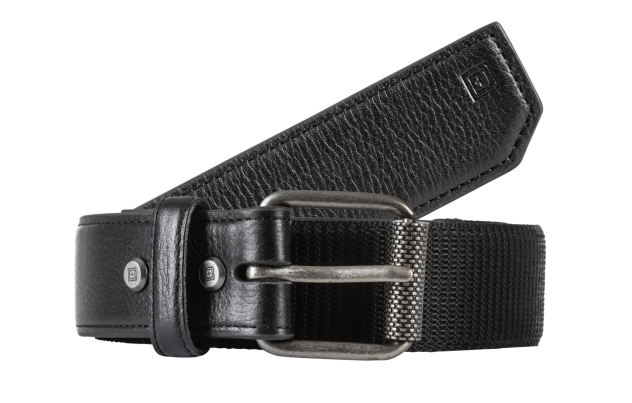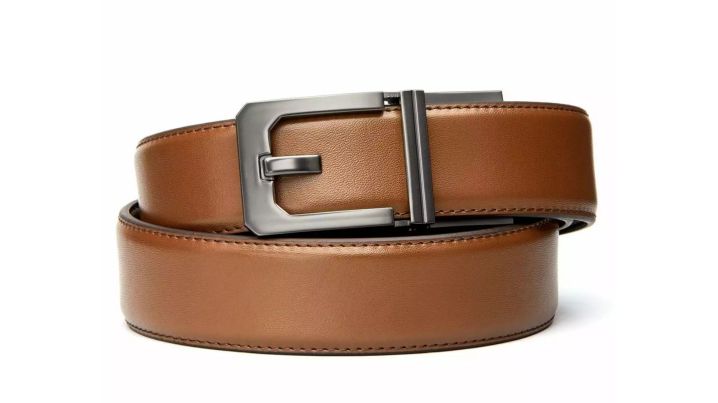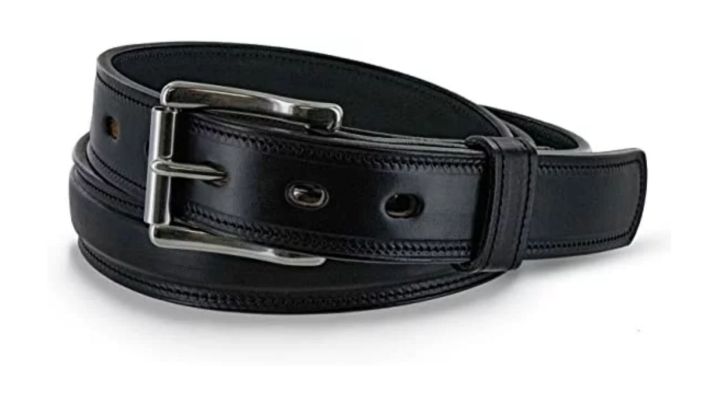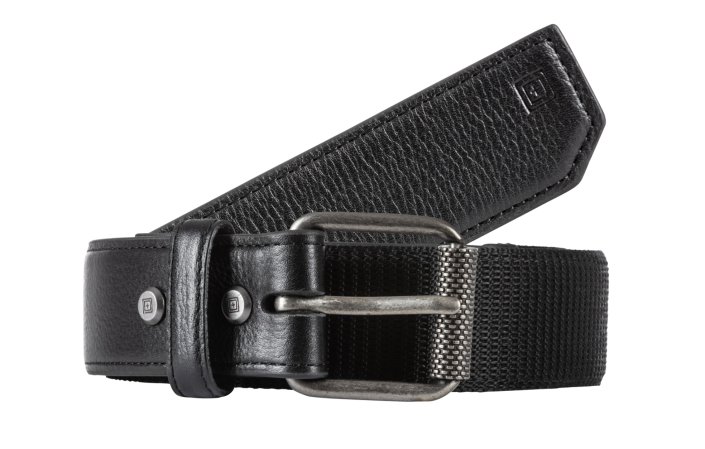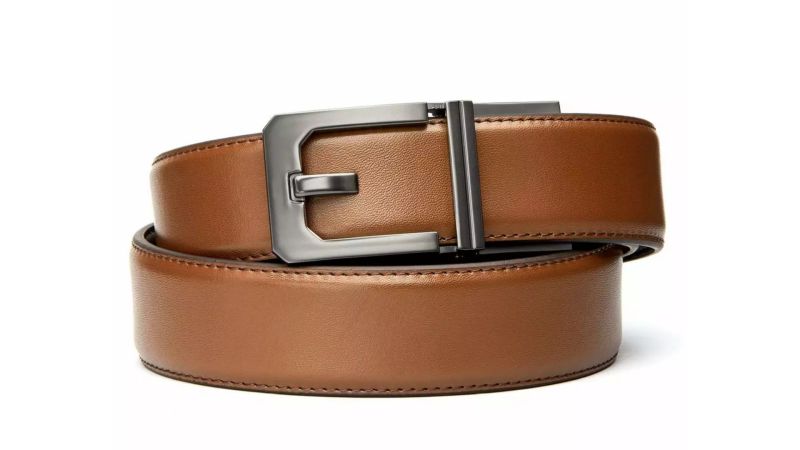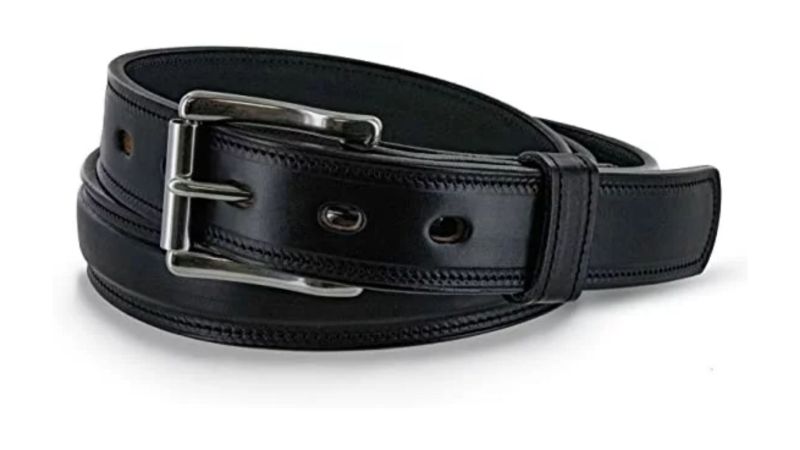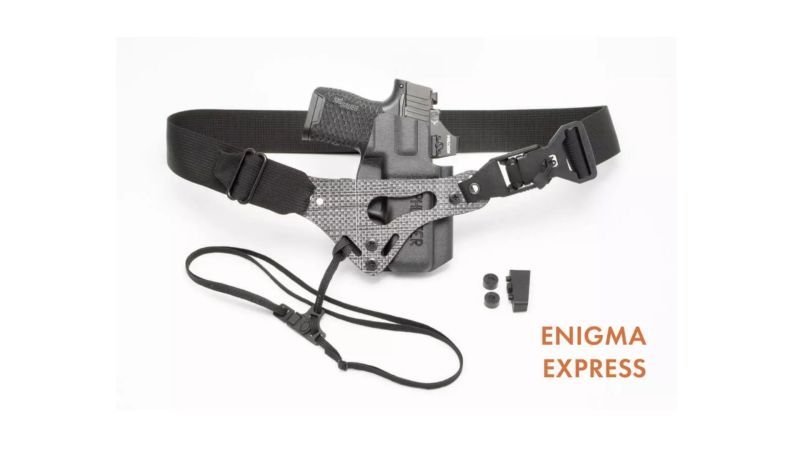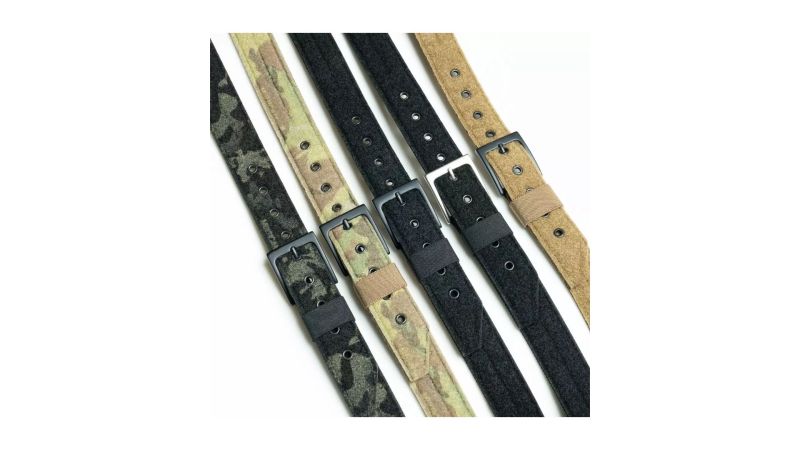We may earn revenue from the products available on this page and participate in affiliate programs.
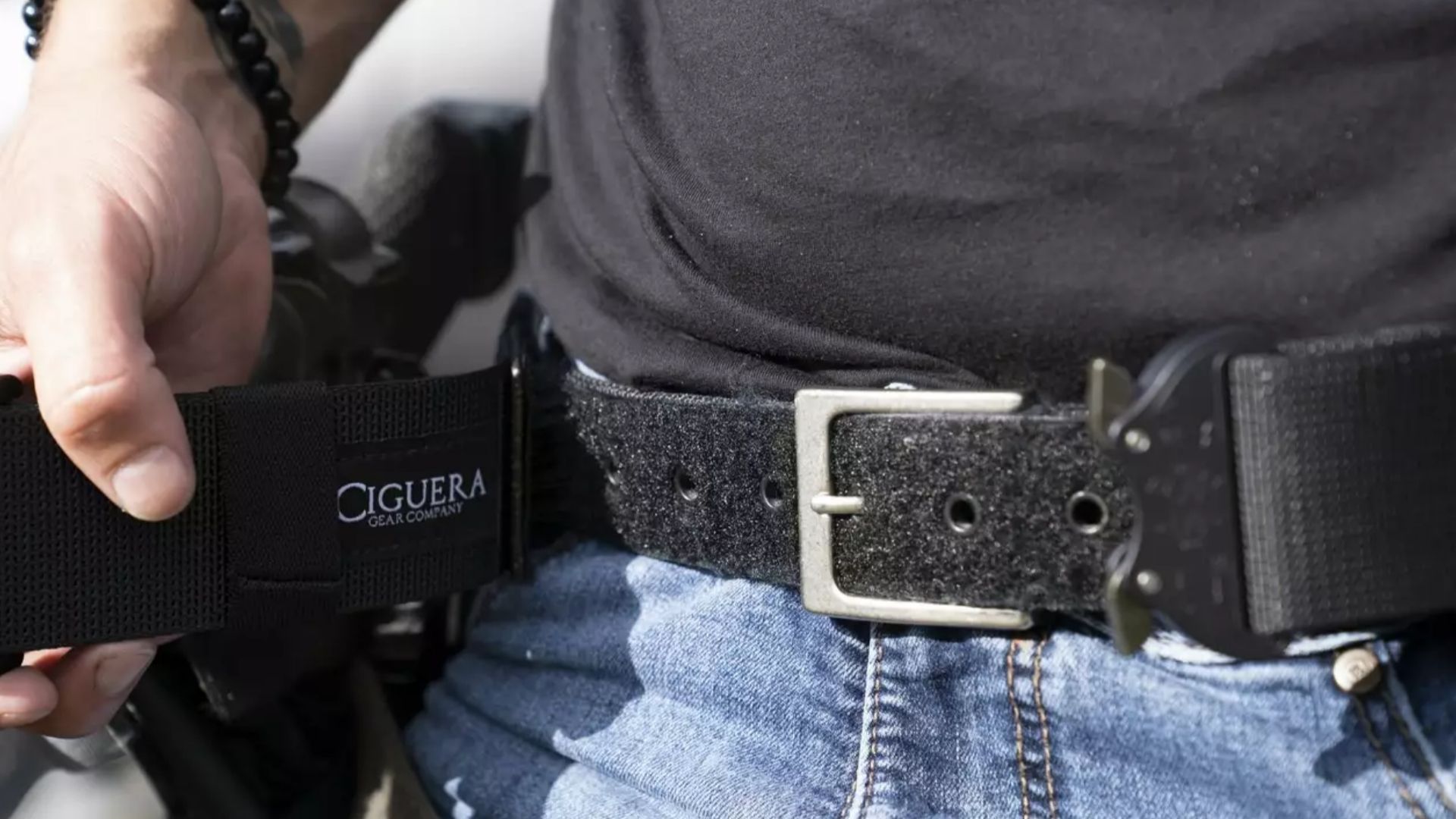
For many who carry a sidearm, a tactical belt is a core element of the carry system. The holster supports the gun and the belt supports the holster. While you might be able to get away with a run-of-the-mill department store belt, they typically won’t support the weight of a loaded handgun and spare magazine without sagging or causing discomfort. The best tactical belt is heavy-duty enough to support your gear without compromising comfort or personal style.
In this article, we’re looking at tactical gun belts for concealed carry because we covered belts for overt carry — battle belts, gun belts, gunfighter belts, or whatever you want to call them — in our best gun belt article. Therefore, we’re looking at the best tactical belts for covert use, meaning you wear them in a way to conceal your gear.
All of the belts on this list were recommended and tested by Task & Purpose and our trusted experts. These heavy-duty belts are trusted every day by people who are serious about carrying a firearm for personal protection, or as part of a professional ensemble in plain clothes.
Best Overall
5.11 Tactical Mission-Ready Belt
Best Value
Kore Essentials Leather Gun Belt
Editor’s Choice
Hank's Esquire Premium Dress Belt
Best for Women
PHLster Enigma
Best Multifunctional
Ciguera Gear Emissary Velcro Belt
Why you should trust us
For this article, I based my choices off my personal experience with concealed carry, as well as interviews with people who have concerns like using their belt for both covert and overt work, or making a holster work with women’s clothes. All of the choices today were recommended by name, and the users were able to show prolonged heavy-duty use.
Types of tactical belts for concealed carry
Within the family of tactical belts for concealed carry, there are three major groups of belts: pistol belts, inner belts for use with a gun belt or battle belt, and inside-the-waistband belts for use without belt loops. These definitions include variations on these themes, as with pistol belts that either use conventional eyelets and buckles vs those who use ratcheting systems.
Pistol belts
These are the simplest belts of the group, often just a standard belt that has an added stiffening layer, which can be plastic, Kevlar, steel, or another material to support the weight of a pistol holster.
Inner belts
Inner belts are specifically designed to be used to support an outer gun belt, battle belt, or gunfighter belt. These belts may feature things like a stiffening layer, but the telltale sign of an inner belt is Velcro on the outside of the belt to bond to the outer belt, which carries the wearer’s equipment.
Inside-the-waistband belts
Until recently, inside-the-waistband belts for concealed carry were things like elastic “belly bands” that offered no support for the wearer’s firearm, no trigger protection, and were difficult to use. However, with the advent of systems like the PHLster Enigma, this is finally a viable option, especially for those who don’t usually wear pants with belt loops.
Key features of tactical belts
The three features of a tactical belt that determine its capabilities are its rigidity, or how much it supports your equipment, how it fastens, and what it’s made of. These three factors will determine things like how heavy of a pistol you can carry, what you can wear these belts with without looking odd, and what purposes you can use these belts for.
Stiffening layer
Often made of plastic, Kevlar, steel, carbon fiber, or scuba webbing, the stiffening layer is an interior feature of the belt that prevents it from sagging under the weight of a pistol holster or magazines.
Fastening system
How the belt fastens is fairly self-explanatory, and this can be a traditional buckle and eyelet, Velcro, a ratcheting system, friction buckles, or other systems. This is mostly user preference since most of these don’t affect much besides how easy it is to resize the belt when wearing a pistol inside or outside the waistband.
Construction material
What the belt is made of determines how long it will last, how it looks in certain modes of dress, and how comfortable it will be. Things like top-grain vegetable-tanned leather will last a long time, age well, be more comfortable, and look great in business attire, whereas a steel-lined scuba webbing belt will support a pistol better, but make you look like a mall ninja in normal attire.
Tactical belts pricing
Tactical belts largely fall into one price range, which is $50 to $80 for most simple belts. Anything higher than this likely features some sort of exotic material like premium leather, an unusual fastening system, or is part of a larger system like the PHLster enigma.
How we chose our top picks
To select these belts, I turned to people who take concealed carry seriously, such as plainclothes law enforcement, tactical intelligence officers, shooting instructors, and those who carry due to ongoing threats against their lives. They gave me the brands they trust their lives to, and a lot of the same names came up repeatedly, which when combined with my own evaluation of these belts and their features, means that these are a solid choice no matter who you are.
FAQs on tactical belts
You’ve got questions, Task & Purpose has answers.
Q: Does a tactical belt go through belt loops?
A: Some do, as with most of the tactical gun belts on this list, but there are belts like the PHLster Enigma that go inside your clothes, and gun belts, which go over an inner belt and use Velcro to stay attached.
Q: Why are tactical belts so expensive?
A: Things like durability and rigidity are paramount with tactical belts, so greater care has to be taken to make them stand up to heavy use, rather than just look the part. Things like stiffening layers, durable leather or nylon, and dense stitching cost money.
Q: Can you put a holster on a tactical belt?
A: Yes, that’s the purpose.
Q: What tactical belts do the military use?
A: Belts specifically designed for concealed carry aren’t a common tool in the military, and many service members use battle belts instead. However, certain individuals like those assigned to various three-letter agencies who work in plain clothes have spoken highly of belts from brands like 5.11, Hanks, and Galco.
